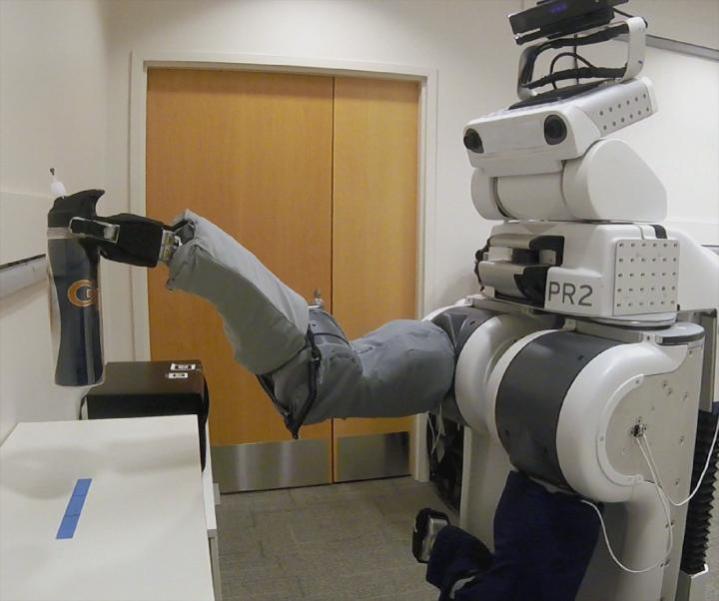
Robots might be coming for your job, but they can do tremendous good in the world as well. Assistive technologies can benefit people with disabilities by giving them greater independence and control over their lives, like the assistant robot developed by a team at Georgia Tech to help people who have severe motor impairments.
“Our goal is to give people with limited use of their own bodies access to robotic bodies so they can interact with the world in new ways,” Professor Charlie Kemp from the Wallace H. Coulter Department of Biomedical Engineering at Georgia Tech said in a statement.
The system they came up with is based on a robot called a PR2 mobile manipulator manufactured by Willow Garage. It is a wheeled robot with two arms and a head, and it can manipulate objects like water bottles, washcloths, hairbrushes, or an electric shaver. Crucially, the robot can be controlled using assistance technologies that users are already familiar with, such as eye tracking or head tracking. The interface shows a “robot’s eye view” from cameras inside the robot’s head, making it easier for the user to control.

Potential users of the robot surrogates include people like Henry Evans, who worked with the team during their testing and who has very limited control of his body following a stroke. Evans used the robot to care for himself for a week and emphasized the value of having a system that he could operate completely independently, using small head movements to give it commands.
“The system was very liberating to me, in that it enabled me to independently manipulate my environment for the first time since my stroke,” Evans said. But he also pointed out that although the robot could already bring benefits to users as it exists today, it would need to be reduced in size and in cost before it could be made commercially available.
Phillip Grice, a recent Georgia Institute of Technology Ph.D. graduate and first author of the paper, was also pleased with the results: “Our results suggest that people with profound motor deficits can improve their quality of life using robotic body surrogates. We have taken the first step toward making it possible for someone to purchase an appropriate type of robot, have it in their home and derive real benefit from it.”
The results are published in the journal PLOS One.




